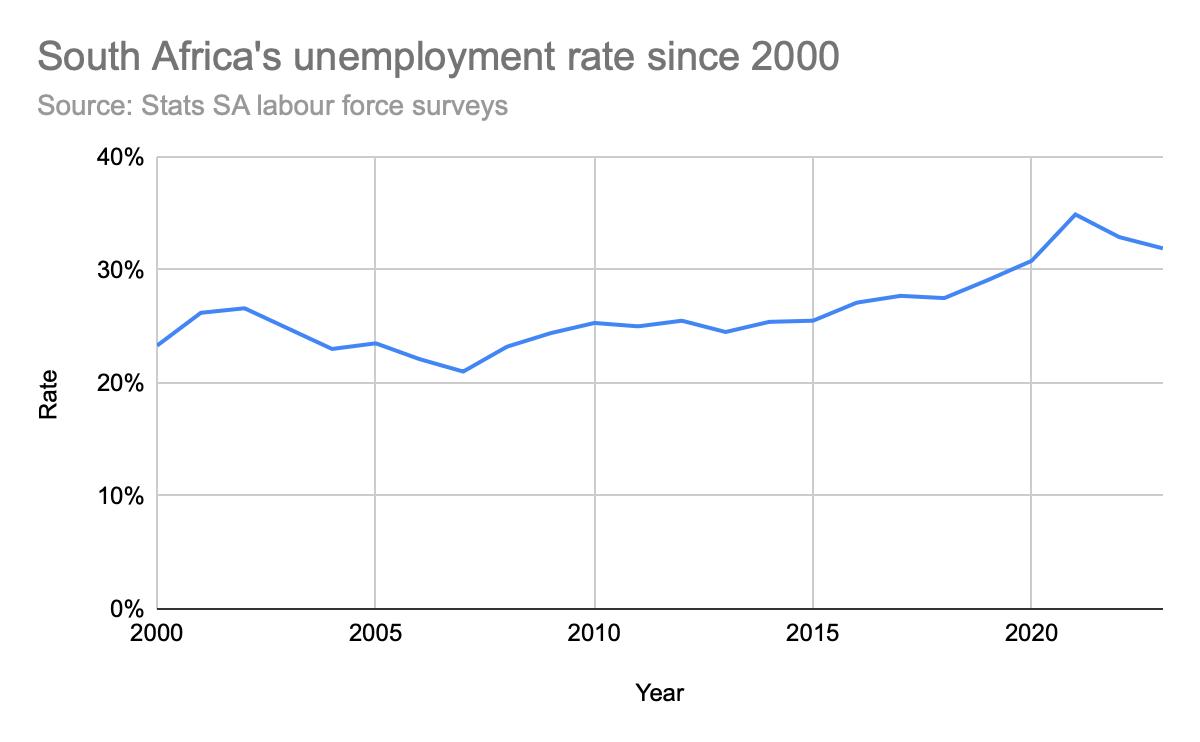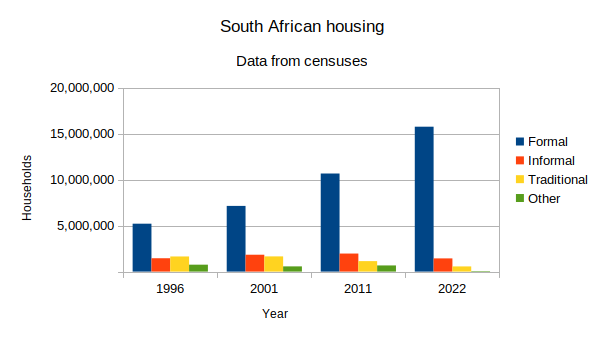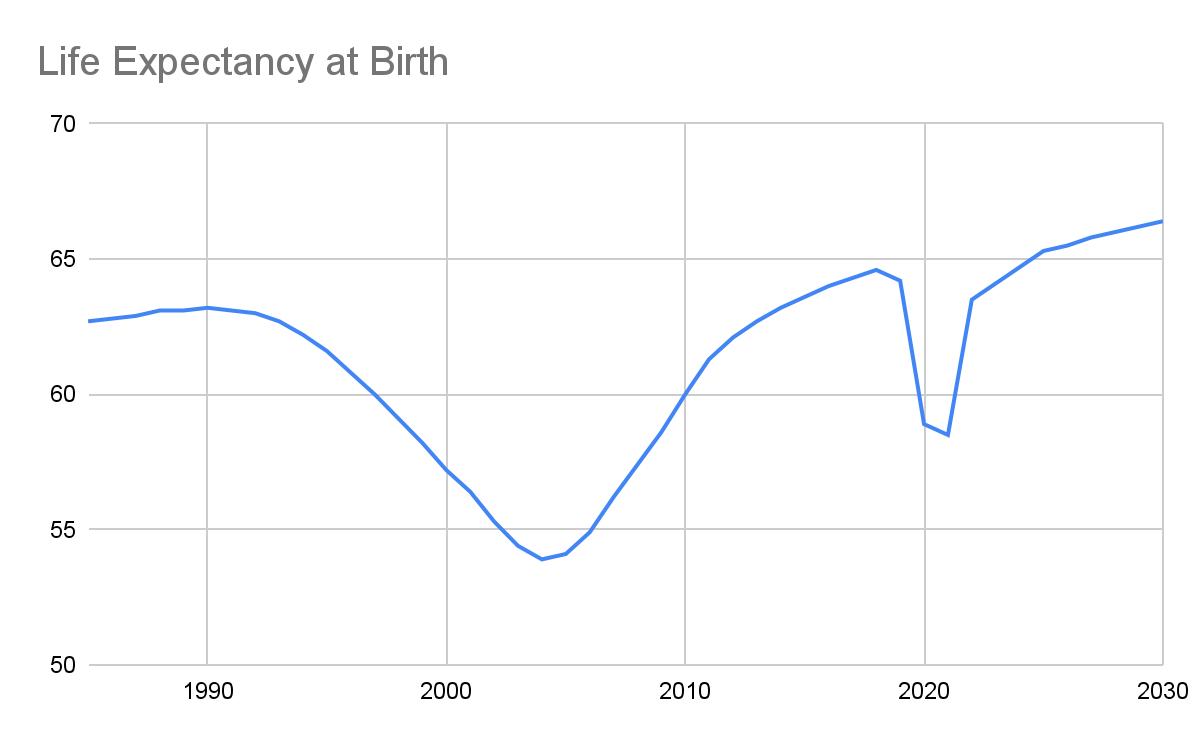Home › Forums › A SECURITY AND NEWS FORUM › South Africa: key statistics ahead of the 2024 elections Here is how we’re doing on unemployment, murder, housing, life-expectancy and social grants
- This topic is empty.
Viewing 1 post (of 1 total)
-
AuthorPosts
-
2023-12-18 at 12:40 #432748
 Nat QuinnKeymaster
Nat QuinnKeymasterAhead of the 2024 election, we examined how South Africa has done on several important measures over the past few decades. We looked at the following topics
-
murder;
-
unemployment and how it has changed since 2000;
-
social grants and how coverage has changed since democracy;
-
state provision of housing; and
-
HIV and life-expectancy.
Murder and crime
Crime consistently ranks as one of the two major concerns of South Africans, along with unemployment. But other than murder, crime rates are hard to measure because many crimes go unreported. Murder is both the most serious and best measured crime. It’s a proxy for how we’re doing on crime generally. Unfortunately the country is regressing.
From 1995 until about a decade ago South Africa was making headway. The murder rate was dropping. But for the past decade it has steadily got worse.
Number of murders in the Western Cape, April 2012 to March 2023, and the corresponding murder rate (murders per 100,000 people). Sources: SAPS and Thembisa Year Murders Per 100k 2012/13 2,575 44 2013/14 2,904 48 2014/15 3,186 52 2015/16 3,224 52 2016/17 3,311 52 2017/18 3,729 57 2018/19 3,974 60 2019/20 3,975 59 2020/21 3,848 56 2021/22 4,109 60 2022/23 4,114 59 Unemployment
Our chronic, most pressing problem that we have failed to fix is unemployment.

The unemployment rate has not dropped below 20% since 2000. The graph was constructed using the quarterly labour force surveys published by Stats SA.
Social grants
In the face of massive unemployment, the social grant system helps millions of people in South African to survive. Without it the country would be plunged into chaos. The following graph shows how the number of grant recipients has increased since democracy.

This chart shows how grant recipients have increased since 1994. Data was provided by UCT’s Centre for Social Science Research.
Housing
The Reconstruction and Development Programme of the ANC in 1994 was its flagship programme and promised to provide everyone with houses. While much progress was made, there is still a long way to go. We found that the quality of data was unexpectedly poor, especially the 2022 census that was published this year.

Sources: Census 1996, 2001, 2011, 2022 from Stats SA
HIV and life-expectancy
We examined how antiretroviral treatment has reversed the country’s decline in life-expectancy. The following graph of South Africa’s change in life-expectancy since the late 1980s and projected to 2030 is quite extraordinary. One would be hard-pressed to find a country in the world with life-expectancy as volatile as this. The first dip was due to the HIV epidemic. The second, much shorter one, was due to Covid. The good news is that life-expectancy appears to be on a sustained upward trajectory.

South Africa’s life-expectancy is now about 64. Barring any unforeseen catastrophes it will continue to rise to well above 65 by 2030, the highest it has ever been but still far below the world average. The data for the graph was sourced from the Thembisa HIV model.
source:South Africa: key statistics ahead of the 2024 elections | GroundUp
-
-
AuthorPosts
Viewing 1 post (of 1 total)
- You must be logged in to reply to this topic.
